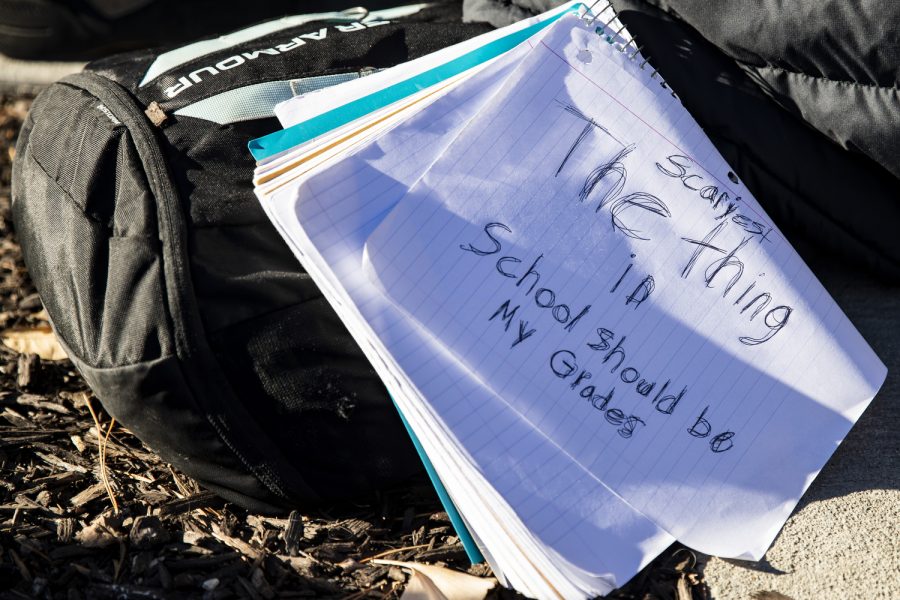Just six days before the first presidential debate between Vice President Kamala Harris and former President Donald Trump, a Georgia school shooting left two students and two teachers dead, with nine others injured.
The 2024 election carries crucial implications for the future of the United States, and the demographic of those impacted by gun violence in particular is arguably being overlooked.
The students who survived the 2012 Sandy Hook elementary school shooting — a pivotal moment in the movement for gun reform — are now adults of voting age.
“I’m graduating, I’m going to college, I get to go home, I get to see my dog, I get to do all this when they don’t. It’s just really hard,” survivor Emma Ehrens said in an interview with CNN.
For Ehrens and fellow survivor Grace Fischer, trauma has become motivation. Both have joined a foundation dedicated to gun prevention awareness. They also plan to pursue careers in legal studies, hoping to bring about change and increase civic engagement.
But it’s not just the surviving students who will be voting.
It’s an entire generation of kids who grew up with active shooter drills — taking breaks from times tables and school readings to learn how to barricade doors with chairs and cram 30 kids under counters — all to avoid the ever-present fear of becoming the next gun violence statistic.
Not only does this generation hold strongly developed opinions about gun policy, they’re also more politically active than previous generations at the same age.
Forty-one million members of Gen Z will be eligible to vote in the 2024 election. Despite this, neither presidential candidate is assuming a strong stance on gun reform.
The subject of gun control was noticeably absent from the debate, reflecting a shift away from the 2016 election when 72 percent of registered voters saw gun policy as a top issue.
The topic was only briefly mentioned when former President Trump accused Vice President Harris of planning to “confiscate everybody’s gun” during their debate on Sept. 10.
This comment came as no surprise. Ahead of the 2016 election, the National Rifle Association spent more than $30 million to help elect Trump. In line with traditional conservative policy, he pledges to protect gun rights and has previously rolled back several gun safety measures.
Comparatively, Harris appears better positioned to enact changes to gun policy. Alongside President Joe Biden, she helped enact the Bipartisan Safer Communities Act and launched the first-ever White House Office of Gun Violence Prevention, the former of which she described as “the most significant gun safety law in nearly 30 years.”
That said, she seems hesitant to emphasize this as the election nears, likely an attempt to appeal to moderate voters. In response to Trump’s comment, Harris took a tempered approach, responding that both she and her running mate, Tim Walz, are gun owners.
Trump’s assertion reflects a common misconception that supporters of gun-safety measures want to eliminate firearms entirely. It may also explain why Harris is highlighting her own gun ownership but not her gun policies. Many view gun ownership and gun policy as being mutually exclusive — to bring up one is to assume there is no concern for the other.
In reality, gun reform policies aim to make gun ownership safer through licensing requirements, strengthened background checks and red flag laws, often referred to as “common sense laws.” If a person is mentally stable, has acquired a gun legally, and intends to handle it safely, they should have no reason to oppose gun reform.
In response to the Georgia shooting, Republican vice-presidential nominee JD Vance called for increased school security stating that, “If you are a psycho and you want to make headlines, you realize that our schools are soft targets.”
This demonstrates how far removed some politicians are from the reality of school shootings and gun safety.
Schools should not need increased security. They should not be made into prison-like institutions when there is a simpler, immediate solution. Gun violence must be stopped at its core before a would-be shooter has the chance to walk up to a school.
This means enacting more thorough background checks, as well as red flag laws so a person with a history of violence or serious mental illness cannot buy a weapon in the first place. It means tightening loopholes that allow people to purchase firearms without proper registration.
Increased security does not solve gun violence. It puts the burden on kids and teachers by showing them they must sacrifice the comfort of their school because lawmakers aren’t willing to pass laws that protect them.
School shootings should not be an accepted fact of life. No student should walk into a classroom and calculate escape routes or hiding places. No student should attend class each day wondering if they’ll make it home. No student should watch their classmate die.
The kids who grew up in an era of violence are now voting adults ready to petition for, guide, and support change. Candidates should bear this in mind as Nov. 5 approaches. While only time will tell, younger generations could transform this election.
Ehrens, Fischer, and two other first-grade survivors of the Sandy Hook school shooting plan to cast their vote for Vice President Kamala Harris.
“It’s a no-brainer for me,” survivor Lilly Wasilnak said in an interview with NBC. “I’m casting a vote for the 26 who can’t.”



